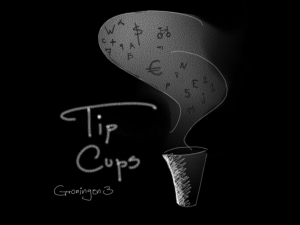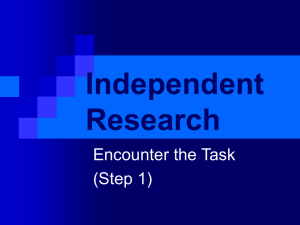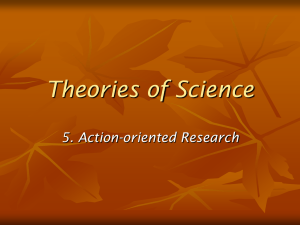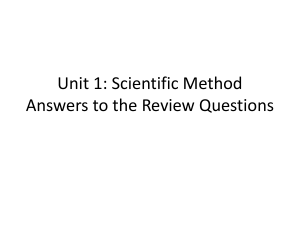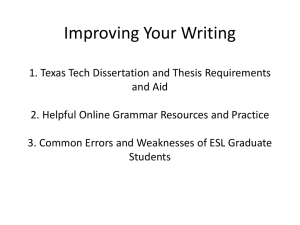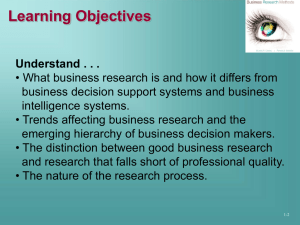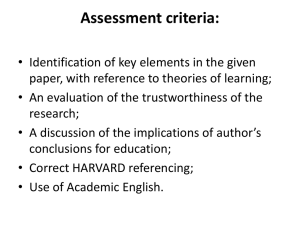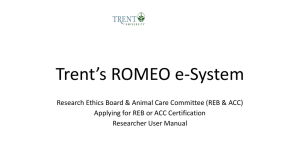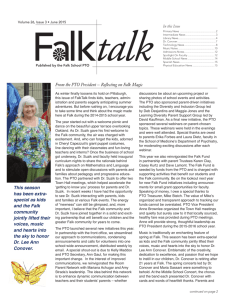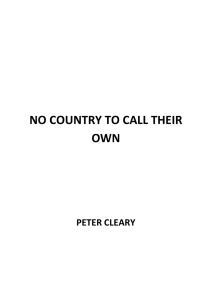Positioning students as stakeholders in the research interview.
advertisement
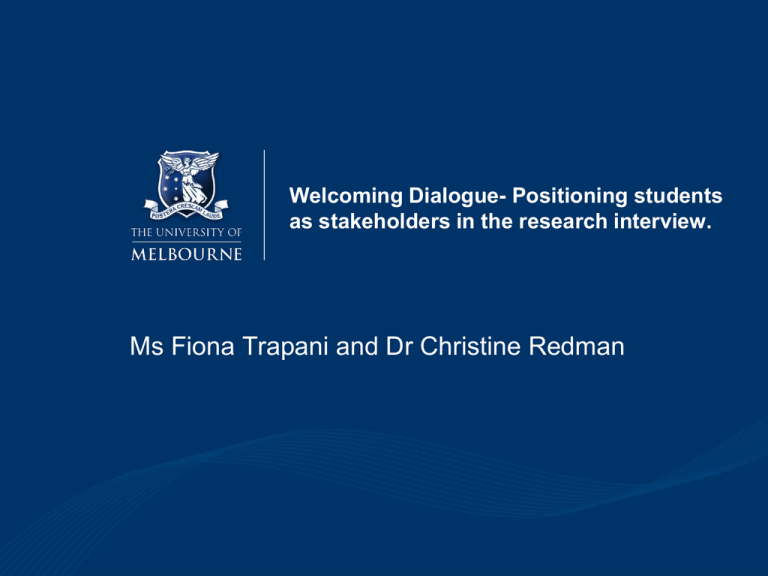
Welcoming Dialogue- Positioning students as stakeholders in the research interview. Ms Fiona Trapani and Dr Christine Redman Overview of presentation IntroductionWhy and how a researcher can utilise a PMMM* as a “Welcome dialogue” opportunity Theoretical frame - meaning making Outline of Method- relationship dynamic Elsa case study- example of relationship building Conclusion- Welcoming Dialogue- as a Method *PMMM: Personal Meaning Making Map (Falk et al 1997) Introduction – (why and how) Problem, ideas and aims • PhD Research - Important to me • Why should the students in my sample care? -The need to honour stakeholders • Shared data, Shared story, Shared ownership conjointly constructed narrative around learning through “passion projects”. • Ethics- Pairs of students, time, consent • Building relationships -visiting researcher- becomes an insider perspective. PhD is exploring students’ perceptions of their learning in creative & contemporary contexts? (Passion Project- student inquiry) Start with a picture… Methodological frame- Roberts’ (1996) triangle Literature- underpinning methodology • Agency (Giddens, 1993) – ‘Me’ as researcher – Students as stakeholders – sharing their experiences and ideas around learning. • Identity (Linehan & McCarthy 2000) – Initial perception of ‘Adult’ and ‘child’ – Shift focus to empower child. • Rights and Duties (Redman & Rodrigues, 2008) – Ethics- Clearly outlines ‘non-negotiable – Researcher as ‘supportive outsider’ Literature- underpinning methodology • Story lines and positioning theory (Harre & Van Langenhove, 1996) – Conversation as narrative- dialogical construction of meaning- “Do and Say” • Cover, Secret and Sacred stories (Clandinin and Connelly, 1996) – Building relationships to generate data that gives more than a cover story. Methodology- creating a safe place • Exploring student’s perception of learning in ‘passion project’. • 2 Interviews- PMMM* focused, student directed a) Discussion and drawing PMMM (Falk et al, 1997), with reflection on PMMM. b) 2 or more weeks later: Semi-Structured Interview, reflecting on PMMM. c) Students choose Pseudonym d) Students have ‘right of reply’ to examine and edit the transcripts. *PMMM: Personal Meaning Making Map (Falk et al 1997) So what? Student perspective • Data indicates that students enact their agency to show aspects of their identity. • I made 2 additional visits to her school, at Elsa’s request, as she wanted to share her next pieces of work with me. • Identity- PMMM clear student control, and identification that I am a supportive adult. • Rights and duties- recognised, respected and developed. So what?- researcher perspective • The research interview is seeking to develop a dialogical relationship in a short time frame. • “Welcoming Dialogue” encompasses: – Agency of researcher and student to co-author storylines. – Identity of researcher and student; be prepared to shift to share data, story and ownership. – Rights and Duties may shift- don’t fear this ‘unknown’ -be mindful of ethics (Rachael’s caution yesterday). Methodological frame- Roberts’ (1996) triangle Conjointly constructed interview – Agency, Identity and Rights and Duties = strong narrative and story developed for further analysis References • • • • • • • Clandinin, D. J., & Connelly, F. M. (1996). Professional Knowledge Landscapes: Teacher Stories, Stories of Teachers, Schools Stories, Stories of Schools. Educational Researcher, 25(3), 24–30. Falk, J. H., Moussouri, T., & Coulson, D. (1997). The effect of Visotors’ agendas on Museum Learning. Curator, 41(2), 107–120. Giddens, A. (1993). New Rules of Sociological Method (2nd ed.). Stanford, California: Polity Press/Blackwell Publishers Ltd. Harre, R., & van Langenhove, L. (1999). Positioning Theory: moral contexts of intentional action. Oxford: Blackwell Publishers Ltd. Linehan, C., & McCarthy, J. (2000). Positioning in Practice: Understanding Participation in the Social World. Journal for the Theory of Social Behaviour, 30(4), 435–453. doi:10.1111/1468-5914.00139 Redman, C., & Rodrigues, S. (2008). Researching the relationships in the Technologies of Self : Habitus and Capacities “Oughtness” influences discursive practices. In AARE 2008 International Education Research Conference, Brisbane, Australia. (pp. 1–10). Roberts, D. A. (1996). Dialogue Epistemic Authority for Teacher Knowledge : The Potential Role of Teacher Communities- A Response to Robert Orton *, 26(4), 417– 431.

